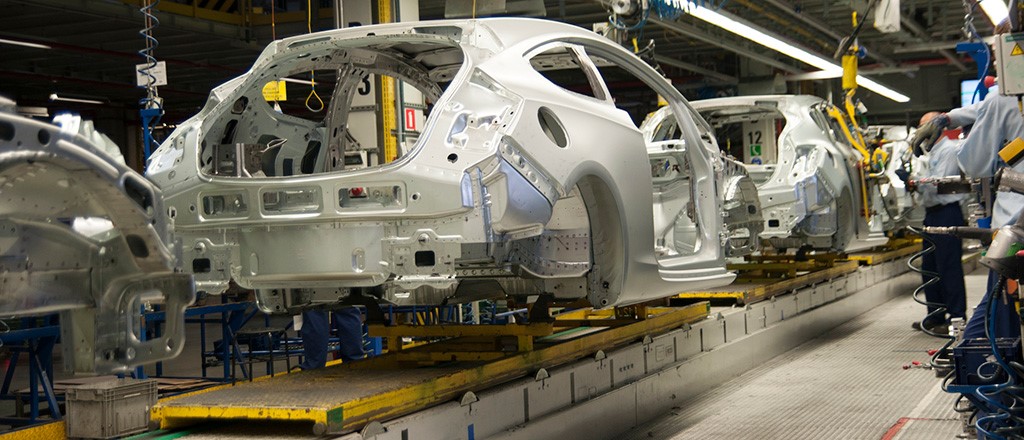The automotive industry has been booming in recent years, as the technology and engineering, knowledge and understanding grows more and more advanced. It has grown so much so, that many businesses are seeking out digital marketing dealerships being the main focus of their work. This is to meet the growing demand for cars and vehicles and finding the right one for them online. You see, it’s not just the general public, but many businesses rely on vehicles to conduct their business if it is only to arrive at meetings on time. More extensively, businesses use commercial vehicles in transporting goods from A to B. In order to keep the shipment safe and secure, ratchet straps, and other industrial accessories may be used to ensure that all goods get to their intended destination without experiencing damage. That being said, this article will consider some of the developments in the automotive industry that have aided businesses and allowed them to conduct business more effectively.
Estate Cars and Vans
Estate cars with their long backs allow for goods to be easily loaded and transported. They were developed from the early shooting-brakes, although with more practicality in mind. A shooting-brake dates to the 1890s and was a horse-drawn wagon that would transport shooting parties along with their equipment and game. Between the first and second world wars, estate cars were so called because they were most often heading towards a wealthy country estate, where its owners would relax upon arrival. In business, it allows the self-employed to have one vehicle that can be used for business and transporting their family about. It is cost-effective for a sole trader to have this dual option.
Vans allow for the transportation of larger goods. For instance, market traders or antique dealers will use them. It is something that can be driven without needing an HGV license, like driving a lorry transporting heavy goods would require. Vans can be bought or leased, and looking for a van insurance quote online must be done to ensure that you have the relevant protection whilst driving this type of vehicle on the roads. “White van man” became a stereotypical phrase used where a smaller commercial vehicle was being driven. It may be for this reason that many more vans produced today seem to be silver in color.
For a vehicle between the size of an estate car and a large van, there is always the minivan. Models to consider might be Chrysler Pacifica, Ford Transit Connect, Honda Odyssey, Mercedes-Benz Metris (or Sprinter), or perhaps the Toyota Sienna.
Hybrids and Electric Cars
The advantages of hybrids to a business could be related to reduced fuel expenses. They have lower fuel consumption rates and attract lower road taxes. However, having a whole fleet of EV business cars might require the company to establish charging stations for convenience. For that, service providers similar to RAW charging could be approached to set up electric vehicle charging infrastructure for commercial properties, auto businesses, and property managers. Moreover, the use of hybrid and electric cars can also improve the image and reputation of a business because of their known benefits to the environment.
Trucks and Trailers
Trucks and trailers have become indispensable for businesses in transporting large volumes of goods over long distances. Trucks come in many sizes, from light-duty to heavy-duty, allowing transport of cargo weighing from a few tons to over 20 tons. Businesses can choose the right truck size based on their cargo volume and weight requirements.
Trailers attached to trucks tremendously increase the cargo capacity. There are apparently many types of trailers like flatbed, refrigerated, tanker, and curtain-sided trailers serving different industry needs. To get into the specifics, while flatbed trailers allow easy loading and unloading of construction equipment, vehicles, etc., refrigerated trailers maintain controlled temperatures for transporting perishable goods. Tanker trailers, on the other hand, carry liquids in bulk while curtain-sided trailers safely transport general cargo. With such a wide variety of trailer options available, businesses can find a trailer that suits their specific cargo and capacity requirements.
Technological advances have made trucks and trailers more efficient. GPS navigation helps in route planning and tracking cargo in real-time. Disc brakes and traction control improve safety. Suspensions and aerodynamic designs optimize fuel efficiency. Automatic transmissions and collision warning systems simplify driving and prevent accidents.
These are the three wonderful ways in which the automotive industry has helped businesses. That is, in providing vehicles to transport their goods, cars that are cost-effective when it comes to fuel consumption, and in guiding businesses in the right direction. We look forward to the future and driverless delivery vehicles that can compete with the kinds of delivery drones already promised.


